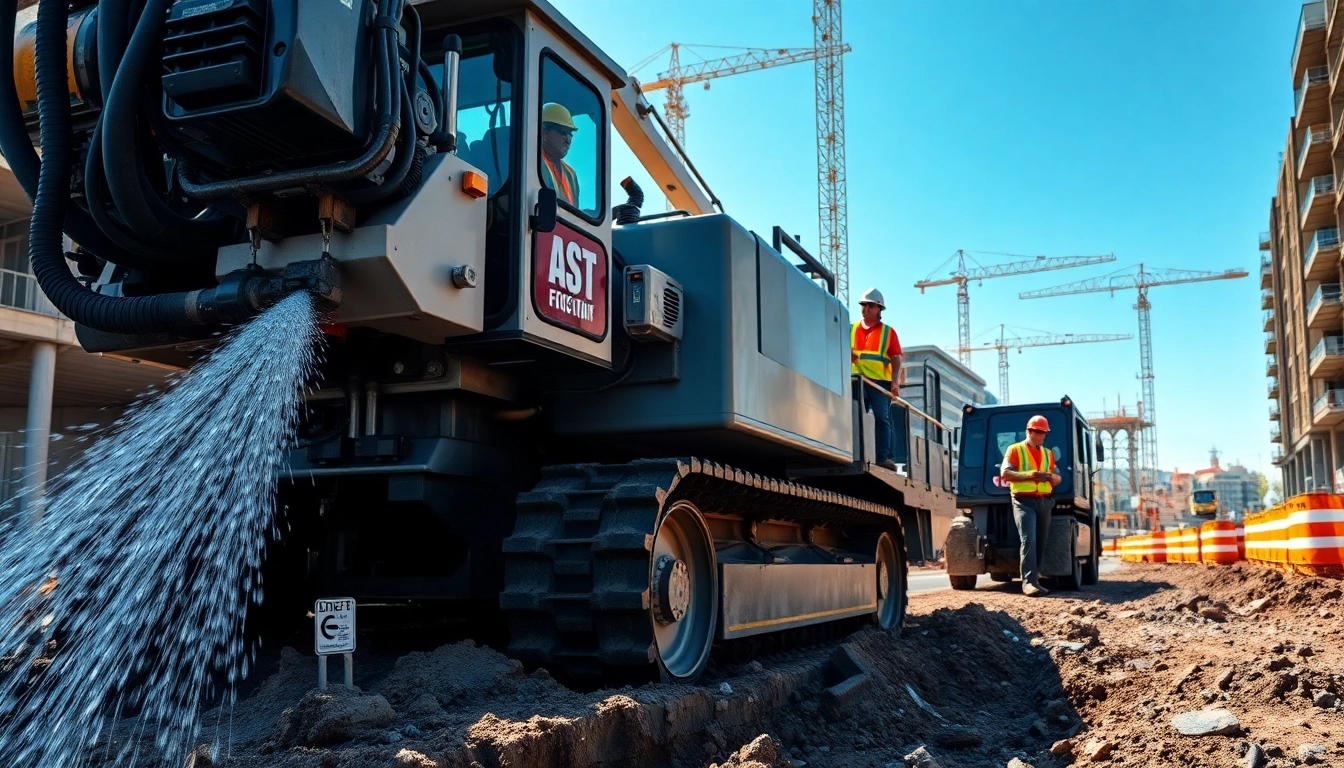
Understanding Hydro Excavation NC
Hydro excavation is an innovative technique that utilizes high-pressure water combined with an air vacuum to safely remove soil and expose underground utilities. This method has gained traction across various sectors in North Carolina, making it a preferred choice over traditional mechanical excavation. The emphasis on safety, efficiency, and minimal disruption to the surrounding environment are some of the key reasons why businesses and municipalities are adopting hydro eexcavation nc.
What is Hydro Excavation?
Hydro excavation, also known as hydrovac excavation, is a non-destructive digging method that employs high-pressure water jets to loosen soil while simultaneously removing it with a powerful vacuum. This technique is particularly advantageous when working in areas where traditional excavation poses risks to existing underground infrastructures, such as gas lines, electrical conduits, and water pipes.
The Importance of Hydro Excavation in NC
The importance of hydro excavation in North Carolina is multifaceted. As urban development continues to evolve, local government and private sectors are tasked with ensuring safety and regulatory compliance in excavation projects. Hydro excavation provides a precise method of locating and exposing utilities without causing damage, further ensuring the safety of both workers and the general public. Additionally, as environmental concerns rise, this method minimizes soil disturbance, thus preserving local ecosystems.
How Hydro Excavation Works
The hydrovac system operates using two main components: a high-pressure water system and an onboard vacuum system. Here’s how the process typically unfolds:
- Preparation: The area is assessed for safety and the location of utility lines is established.
- Water Jetting: High-pressure water jets are used to break up the soil.
- Vacuum Extraction: The soil and debris are sucked into a debris tank using a powerful vacuum.
- Utility Exposure: Once the soil is removed, utilities are cleanly exposed for inspection, repair, or installation.
Advantages of Hydro Excavation Techniques
Precision and Safety in Utility Locations
Hydro excavation is known for its unparalleled precision in locating utilities. Traditional excavation methods often pose significant risks of utility strikes, which can result in costly damages and safety hazards. Because hydrovac systems use pressurized water, they effectively displace soil without the risks associated with conventional digging, allowing for the safe exposure of critical infrastructure.
Cost-Effectiveness Compared to Traditional Methods
While initial costs for hydro excavation might be higher than traditional methods, the long-term savings are substantial. The reduction in damage to underground utilities, paired with decreased labor time, often leads to a net financial benefit. Furthermore, the lower risk of accidents and subsequent project delays adds to the overall cost-effectiveness, making hydro excavation a smart financial choice for construction and maintenance projects.
Minimal Environmental Impact
One of the standout advantages of hydro excavation is its minimal environmental impact. The technique involves less soil displacement and results in reduced erosion and sedimentation compared to traditional excavation. This characteristic makes hydro excavation the method of choice for projects in sensitive environments, such as near water bodies or protected habitats.
Applications of Hydro Excavation in North Carolina
Utility Installations and Repairs
Hydro excavation is extensively used for the installation and repair of various utilities. The ability to precisely locate and excavate around existing utility lines allows for quicker repairs and installations, minimizing disruption to local communities. The method is especially effective in urban settings where space is limited and risks of damage can have larger ramifications.
Site Preparation for Construction Projects
In preparation for construction, hydro excavation facilitates the clearing of sites without the risk of damaging underground infrastructures. This method ensures a clean slate for construction and reduces the need for backtracking due to unforeseen damages. Additionally, it accelerates the initial phases of construction projects, contributing to overall project efficiency.
Excavating Sensitive Areas
In North Carolina, many projects involve work in environmentally sensitive areas where traditional digging could cause significant ecological damage. Hydro excavation mitigates these risks by minimizing soil disturbance and preserving the natural habitat. This is particularly important when dealing with underground water sources, ensuring compliance with environmental regulations and preserving local ecosystems.
Best Practices for Hydro Excavation
Choosing the Right Equipment
Utilizing the right equipment is critical in achieving optimal results in hydro excavation projects. Companies should invest in high-quality hydrovac trucks that are equipped with advanced technology for water pressure and vacuum capability. Choosing the right machines ensures efficiency and effectiveness, minimizing operational disruptions.
Training and Certification for Operators
To achieve the best outcomes, operators must be well-trained and certified in hydro excavation techniques. This training should cover the proper use of equipment, safety protocols, and understanding of underground utility systems. Continued education on evolving technologies and practices is vital for maintaining operational standards and safety.
Maintenance of Hydro Excavation Equipment
Regular maintenance of hydro excavation equipment not only prolongs the lifespan of the machinery but also enhances performance and safety. Adhering to a maintenance schedule that includes checking for wear and tear, testing water pressure and vacuum systems, and conducting thorough inspections is essential for ensuring operational reliability.
Future Trends in Hydro Excavation NC
Innovations in Technology
The hydro excavation industry is witnessing rapid technological advancements, including automation and improved water management systems. These innovations will lead to more efficient processes, enhanced data collection capabilities, and even greater safety measures. As technology progresses, companies that adopt these advancements will maintain a competitive edge.
Environmental Regulations and Compliance
As environmental regulations become more stringent, hydro excavation will be increasingly valuable to companies seeking to meet compliance requirements. The method’s reduced environmental footprint will be a significant selling point, aligning with sustainable construction practices and regulations focused on ecological preservation.
Expanding Market Demand
The demand for hydro excavation services continues to rise across various sectors. As infrastructure ages and urban areas expand, the need for safe and effective digging solutions that minimize risks and environmental impact will increase. This trend is likely to create new opportunities for businesses specializing in hydro excavation, promising growth in the industry.